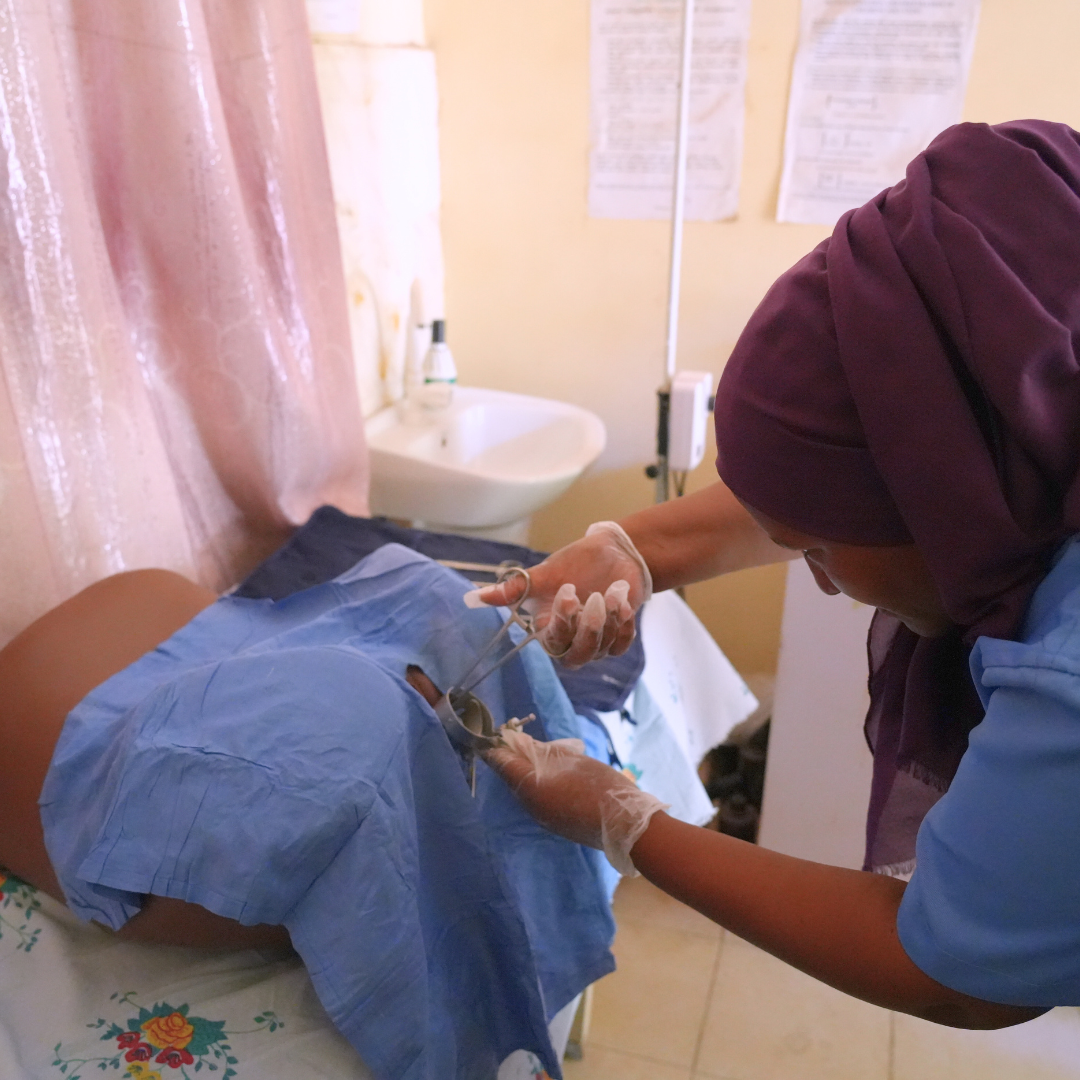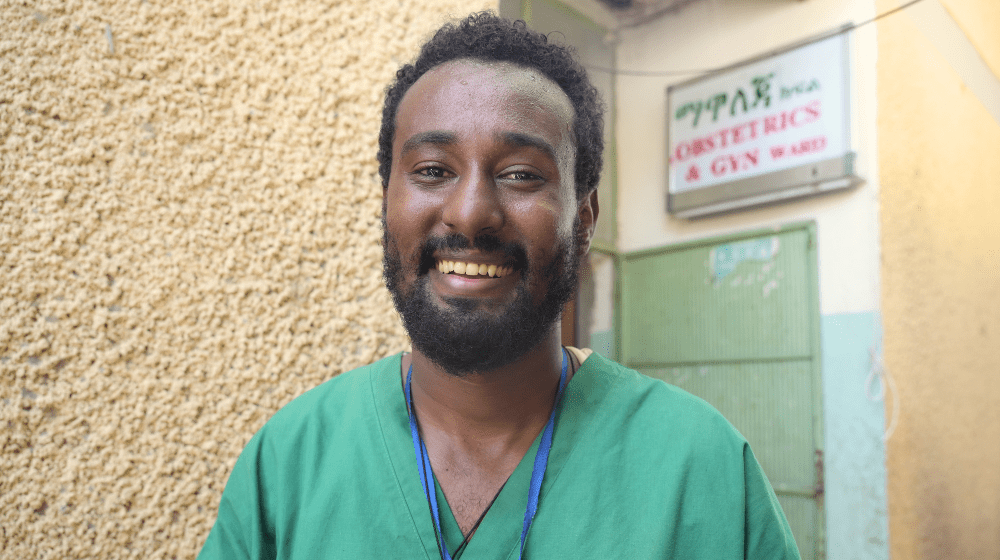Almost three years of the northern conflict have severely affected the health sector in the Afar region. The health sector was looted, and health professionals fled the area.
Dubti Hospital, the only general hospital in the region with a referral center, served over 350,000 people annually before the conflict. After the conflict and the recent draught, the hospital is treating more than 1.6 million patients annually. The hospital faces significant difficulties, particularly in providing quality health care for women and children.
''The crisis has gravely affected our capacity to provide life-saving services, especially to mothers and children,'' said Hussein Aden, CEO of Dubti General Hospital.
16 nurses and midwives from Dubti Hospital and surrounding health centers are receiving training in long-act family planning services. Trainees learn how to provide family planning services, including contraceptives, counseling, and client-centered service delivery. UNFPA is providing the training in partnership with International Medical Crops (IMC) with financial support from the Government of Irland.

while practicing long-term family planning procedures
Jemal Kebede, facilitator of the training from IMC says the training is practical and prepares trainees to provide holistic family planning services. ''The training includes three modules - short-term family planning, counseling, and long-term methods (injectables, implants, and IUDs), and equips trainees to perform the procedures and be certified,'' he said.
Amanuel Mellese, a nurse at Dubti Hospital and a trainee, says this training is the first of its kind in the hospital. "We have learned a lot from this comprehensive and well-structured training to help women make the right decision in family planning'' he said.
''We understand the context is challenging and people are resistant. The training has allowed us to see family planning as a family issue, not just a women's issue. Fathers should be involved and encouraged'' he adds.
Abaynesh Yimam, a nurse at the hospital, provided short-term family planning to mainly HIV-positive women and said that now that she is trained in long-term family planning procedures, she will be better equipped to help women.
''My clients are HIV positive and we highly encourage family planning. However, we could only give them the short act because we are not certified to give the long act. Some women travel to other health centers looking for services. We have been looking for this kind of training to build internal capacity. I am happy that IMC and UNFPA have facilitated this opportunity," she said.
IMC is planning to hold the second round of training for health professionals.
'We prioritize maternal and child health and have established a separate directorate for it'' said Yassin Habib, head of the region’s health bureau. ''We greatly appreciate UNFPA's capacity building and material support. Dubti Hospital received an ambulance from UNFPA, which improved referral services for emergency obstetric care. We hope the partnership continues and strengthens the health services '' he said.
UNFPA has been working with Dubti Hospital since 2018 to improve maternal and child health services and strengthen a one-stop center to provide comprehensive health, legal and psychosocial services to survivors of gender-based violence.


